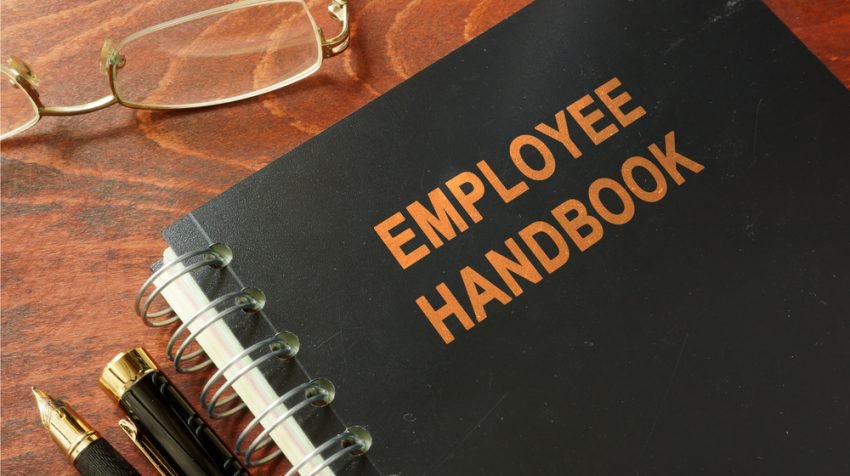
When it comes to your dental or medical practice, one of the most important documents in the life of your business is your employment manual. Even more important are the clauses and policies that are contained within that document. While an employment manual generally contains numerous pages, some clauses and policies are more important than others. Some of the absolutely vital ones to include are provided below.
One of the most imperative policies that should be included in your medical or dental practice’s employment manual is one that discusses anti-harassment (including sexual harassment and anti-retaliation. The fact that these policies are federally regulated by Title VII of the Civil Rights Act of 1964, the Age Discrimination in Employment Act of 1967 (ADEA), and the Americans with Disabilities Act of 1990 (ADA) makes this even more important. As an employer, you must be sure to understand how harassment is defined in order to protect yourself and your company from liability. According to the U.S. Equal Employment Opportunity Commission, “Harassment is unwelcome conduct that is based on race, color, religion, sex (including pregnancy), national origin, age (40 or older), disability or genetic information. Harassment becomes unlawful where 1) enduring the offensive conduct becomes a condition of continued employment, or 2) the conduct is severe or pervasive enough to create a work environment that a reasonable person would consider intimidating, hostile, or abusive.” Because it is difficult to sometimes interpret what is considered to be offensive, severe, or unreasonable, it is best to state that there is a zero-tolerance policy regarding any type of harassment in the workplace. As an additional precaution, it is important to also include a process for redressability when it comes to any harassment that might occur. This should contain information about anti-retaliation as employees need to be aware that they cannot be punished for good faith reporting of complaints and/or participation in investigations regarding those complaints.
Nearly every state in the United States has at-will employment. As such, it is crucial for you to include an at-will employment policy in your employment manual. The key to insulating yourself from liability is understanding what at-will employment means and how it is or is not applicable to you. At-will employment essentially means that as an employer, you may fire anyone, at any time, for any or no reason, as long as the reason is not illegal and is not discriminatory pursuant to a federally protected status. Alternatively, at-will employment also means that as an employee, you may quit your job, at any time, for any or no reason, with or without notice. Because you want this to be as clear as possible in your practice’s employment manual, you should provide an explanation that the terms of employment include at-will employment, which should also clarify that the employment manual itself should not be perceived as a contract.
 One area of employment law that is continuously litigated is that of meal and rest breaks. The more vague that your policy appears, the more likely that you are subjecting yourself and your medical or dental practice to potential liability. First, you should research local and state laws, as your state may not require meal or rest breaks. Should your state require meal breaks, those periods are not considered time worked and should be unpaid. Typically, this is for meal breaks at a minimum of 30 minutes. Secondly, federal law does not require employers to provide rest breaks of short duration (i.e. a coffee break, etc.). However, if an employer provides a rest break, it is considered compensable time (ranging from 5 to 20 minutes) and is subject to overtime. Lastly, in California, several courts have recently sided with employers, so far as saying that there is no required monitoring of provided meal breaks as long as employers are providing their employees with the opportunity to take it. While this may appear to be a victory for employers in short term, the litigious nature of this area of employment may lead to continued changes in the near future.
One area of employment law that is continuously litigated is that of meal and rest breaks. The more vague that your policy appears, the more likely that you are subjecting yourself and your medical or dental practice to potential liability. First, you should research local and state laws, as your state may not require meal or rest breaks. Should your state require meal breaks, those periods are not considered time worked and should be unpaid. Typically, this is for meal breaks at a minimum of 30 minutes. Secondly, federal law does not require employers to provide rest breaks of short duration (i.e. a coffee break, etc.). However, if an employer provides a rest break, it is considered compensable time (ranging from 5 to 20 minutes) and is subject to overtime. Lastly, in California, several courts have recently sided with employers, so far as saying that there is no required monitoring of provided meal breaks as long as employers are providing their employees with the opportunity to take it. While this may appear to be a victory for employers in short term, the litigious nature of this area of employment may lead to continued changes in the near future.
Most employers opt to include a right to revise policy as a means to protect themselves from any liability issues. Such a policy can be very simple but is very clear-cut to any employees that read it. Right to revise policies usually states that the employer has a right to revise, delete, amend, or issue new policies stated in any document provided to employees as part of their employment rules and procedures and that the latest version of the handbook supersedes any previous policies that they had in place. While this is a relatively self-explanatory policy, you should be aware that there is no legal requirement to provide notice of any updates or changes to your employees. However, it is generally a good practice to do so.
While federal law governs many areas of Employment Law, there are just as many areas that are governed by local and state law. It is extremely important that you research laws that may be related to your medical or dental practice to be certain that you are in compliance with any additional requirements. The variety of laws that may vary from state to state include paid sick leave, pregnancy leave requirements, parental leaves, military leave, payment of wages, vacation/PTO pay, social media laws, weapons in the workplace, drug use, and laws regarding privacy of personnel files. For example, states such as California, Washington, Maryland, Massachusetts, Arizona, and Oregon have mandated sick leave requirements that all employers in those states must adhere to. In addition to varying local and state laws, laws derived from federal law may vary from state to state. For instance, federal minimum wage requirements are set, but states may also set their minimum wage, as long as it is in compliance with the federal minimum amount. States are also able to set their own overtime requirements and states such as California, Alaska and Nevada have a daily overtime requirement in addition to the federal 40 hours per week requirement. While it may seem like state-specific requirements are complex, it is in your best interest as an employer to be compliant with any legal requirement so as to best insulate yourself and your dental or medical practice from liability.
Though the above five policies are only a handful of those that should be included in your practice’s employment manual, you should be certain that you are familiar with and in compliance with them. Laws are in place to protect you as an employer, your employees, and even your workplace. Preparation in advance is the key to getting the most out of your employment manual and that will help you rest assured that you have done your due diligence as an employer.
If you would like to learn more about our services and how we can help you or your dental or medical practice, please contact us below.

Stay updated with industry news!
111 Deerwood Road, Suite 340
San Ramon, CA 94583
Phone: 925-999-8200
Fax: 925-884-1725
frontdesk@dmcounsel.com
| Monday | 8:00AM - 6:00PM |
| Tuesday | 8:00AM - 6:00PM |
| Wednesday | 8:00AM - 6:00PM |
| Thursday | 8:00AM - 6:00PM |
| Friday | 8:00AM - 6:00PM |
| Saturday | Closed |
| Sunday | Closed |